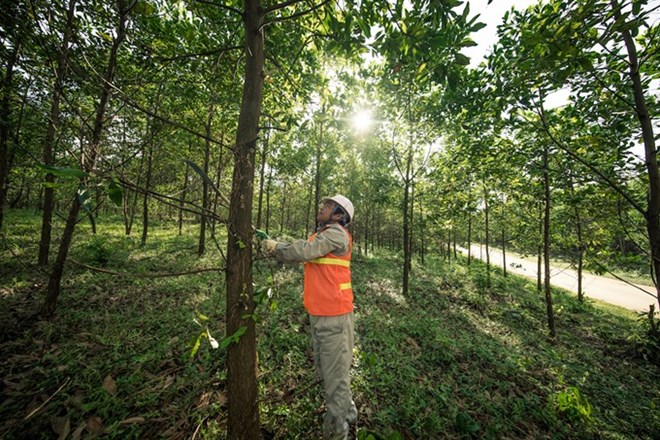
A new World Wild Fund for Nature (WWF) report finds that ASEAN’s biggest banks are increasingly aware of the impact their businesses have on the environment and society. (Photo: WWF)
A new World Wild Fund for Nature (WWF) report finds that ASEAN’s biggest banks are increasingly aware of the impact their businesses have on the environment and society, but are slow to act on the huge potential they hold in addressing climate change and financing sustainable food, energy and infrastructure systems in the region.
The report, published in collaboration with the National University of Singapore (NUS) Business School’s Centre for Governance, Institutions and Organisations, found that ASEAN banks were not disclosing how they managed climate risks in line with the recommendations of the Taskforce for Climate-related Financial Disclosures (TCFD).
The region is particularly vulnerable to climate change, which exacerbates food and water insecurity. By not considering these issues, banks stand to miss out on ‘game changing’ opportunities for the region’s sustainable development and may face unmitigated climate risks in their own balance sheets, according to the report.
Of the 34 banks assessed in six Southeast nations, including Vietnam, only four disclosed that senior managers have oversight of climate change risks and opportunities, a key recommendation of the TCFD.
Meanwhile, none of the banks disclosed whether they had reviewed their portfolio exposure to climate risks. They had also not disclosed their portfolio alignment with the Paris Climate Change Agreement or Sustainable Development Goals (SDGs).
Although some progress on Environment – Society – Governance (ESG) integration has been made, particularly on the part of Singaporean banks and a few Malaysian and Thai banks, disclosure of specific ESG requirements of banks across ASEAN remains limited.
Nineteen banks disclosed they have a standardised framework for ESG risk assessment, but only seven disclosed that they have specific policies for high ESG risk sectors.
Even then, disclosure of the policies themselves is limited, with just three banks disclosing one or two of their key policies.
Regarding specific environmental and social risks, only five banks in ASEAN recognised deforestation risks - a key contributor to climate change - in their clients’ activities and only two recognised water risks. Given these are key risks for the food and agriculture sector highlighted by the TCFD, the implications for regional food and water security are worrying.
Vietnamese banks have shown slight progress, with more banks understanding that their impact lies in their portfolios rather than their own direct operations.
However, they have not disclosed ESG policies and processes, indicating that disclosure is not yet a mainstream practice.
The report finds that ASEAN banks are capitalising on opportunities in response to climate change and the need for sustainable development with 22 banks disclosing they have developed green financial products such as green bonds and sustainability-linked loans.
However, these niche products will not be sufficient on their own for the huge investments required to meet the Paris Agreement and the SDGs by 2030.
In order to properly capitalise on this opportunity, banks must set science-based targets to align their portfolios to a resource- and carbon-constrained world.
The report finds that banks in ASEAN have not yet done this, and may be missing out on opportunities while continuing to be vulnerable to the impending transition and physical risks of climate change.
If the ASEAN region is to experience resilient and sustainable development, banks must accelerate the rate at which they fully integrate ESG, including climate, deforestation and water risks, into core business strategies.
Banks play a crucial role in financing the transition to sustainable food, energy and transport systems in ASEAN and must be part of the solution.
Responsible investors, as stewards of capital, need to ensure that their portfolio banks are making timely progress on this, and engage actively with them to support the transition.
VNS/VNA


























